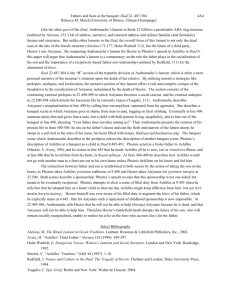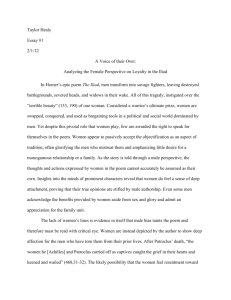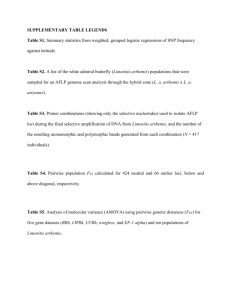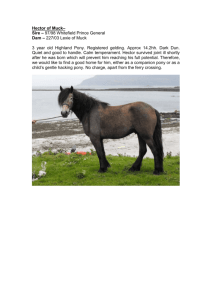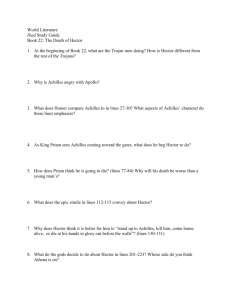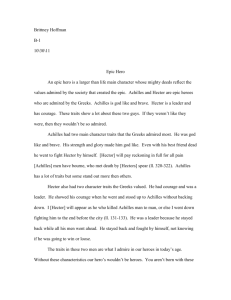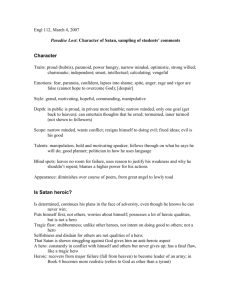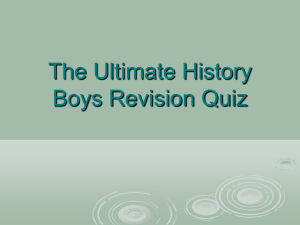Name: Pd. ____ Date: Iliad Hero Essay: Outline and Examples
advertisement
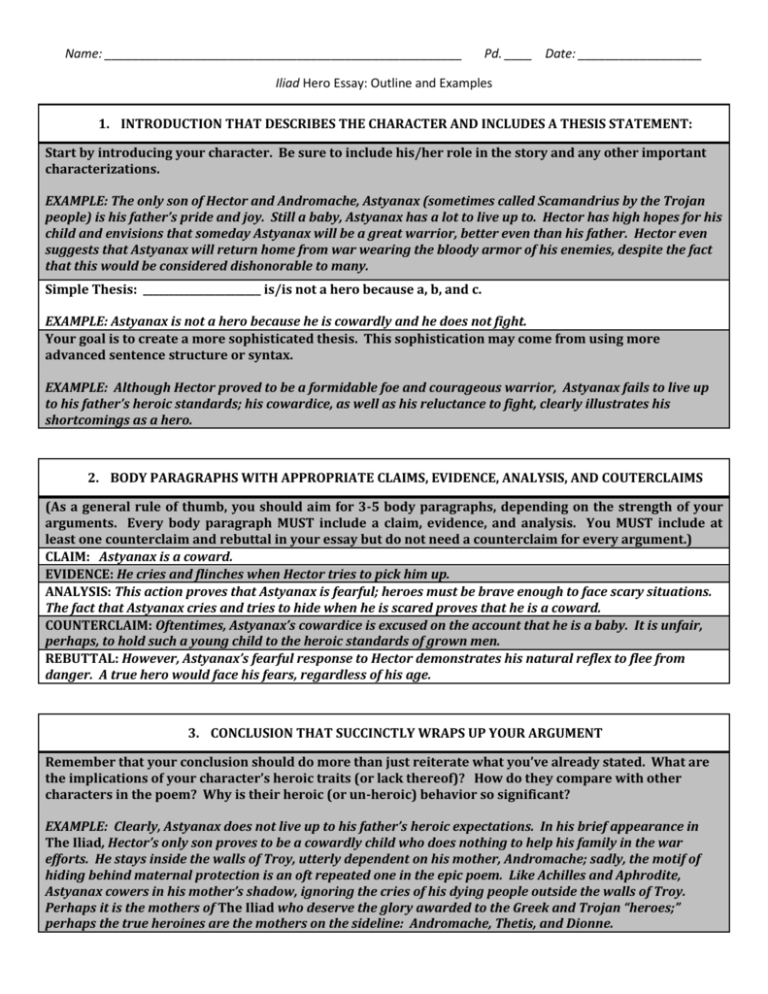
Name: ____________________________________________________ Pd. ____ Date: __________________ Iliad Hero Essay: Outline and Examples 1. INTRODUCTION THAT DESCRIBES THE CHARACTER AND INCLUDES A THESIS STATEMENT: Start by introducing your character. Be sure to include his/her role in the story and any other important characterizations. EXAMPLE: The only son of Hector and Andromache, Astyanax (sometimes called Scamandrius by the Trojan people) is his father’s pride and joy. Still a baby, Astyanax has a lot to live up to. Hector has high hopes for his child and envisions that someday Astyanax will be a great warrior, better even than his father. Hector even suggests that Astyanax will return home from war wearing the bloody armor of his enemies, despite the fact that this would be considered dishonorable to many. Simple Thesis: _______________________ is/is not a hero because a, b, and c. EXAMPLE: Astyanax is not a hero because he is cowardly and he does not fight. Your goal is to create a more sophisticated thesis. This sophistication may come from using more advanced sentence structure or syntax. EXAMPLE: Although Hector proved to be a formidable foe and courageous warrior, Astyanax fails to live up to his father’s heroic standards; his cowardice, as well as his reluctance to fight, clearly illustrates his shortcomings as a hero. 2. BODY PARAGRAPHS WITH APPROPRIATE CLAIMS, EVIDENCE, ANALYSIS, AND COUTERCLAIMS (As a general rule of thumb, you should aim for 3-5 body paragraphs, depending on the strength of your arguments. Every body paragraph MUST include a claim, evidence, and analysis. You MUST include at least one counterclaim and rebuttal in your essay but do not need a counterclaim for every argument.) CLAIM: Astyanax is a coward. EVIDENCE: He cries and flinches when Hector tries to pick him up. ANALYSIS: This action proves that Astyanax is fearful; heroes must be brave enough to face scary situations. The fact that Astyanax cries and tries to hide when he is scared proves that he is a coward. COUNTERCLAIM: Oftentimes, Astyanax’s cowardice is excused on the account that he is a baby. It is unfair, perhaps, to hold such a young child to the heroic standards of grown men. REBUTTAL: However, Astyanax’s fearful response to Hector demonstrates his natural reflex to flee from danger. A true hero would face his fears, regardless of his age. 3. CONCLUSION THAT SUCCINCTLY WRAPS UP YOUR ARGUMENT Remember that your conclusion should do more than just reiterate what you’ve already stated. What are the implications of your character’s heroic traits (or lack thereof)? How do they compare with other characters in the poem? Why is their heroic (or un-heroic) behavior so significant? EXAMPLE: Clearly, Astyanax does not live up to his father’s heroic expectations. In his brief appearance in The Iliad, Hector’s only son proves to be a cowardly child who does nothing to help his family in the war efforts. He stays inside the walls of Troy, utterly dependent on his mother, Andromache; sadly, the motif of hiding behind maternal protection is an oft repeated one in the epic poem. Like Achilles and Aphrodite, Astyanax cowers in his mother’s shadow, ignoring the cries of his dying people outside the walls of Troy. Perhaps it is the mothers of The Iliad who deserve the glory awarded to the Greek and Trojan “heroes;” perhaps the true heroines are the mothers on the sideline: Andromache, Thetis, and Dionne.
